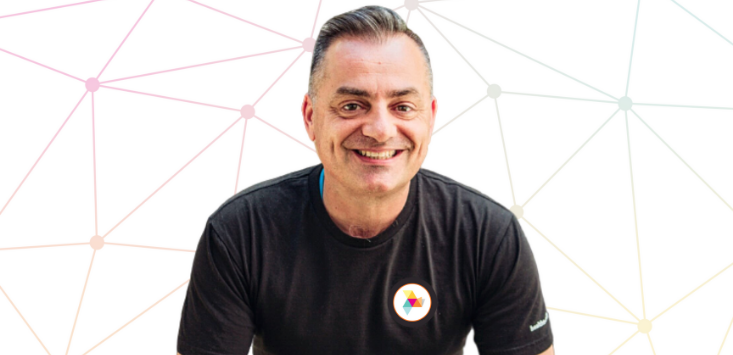
Source: Supplied.
When Yianni Serpanos founded coreplus, he was looking to solve a fundamentally broken part of healthcare — the siloed and inconsistent customer experience.
Serpanos always had a passion for technology and saw the internet as “transformative” in its ability to empower organisations to manage globalised, distributed teams.
It wasn’t until Serpanos experienced his own health problems that he had an “eye opening” realisation that highlighted a crucial gap in the healthcare market.
As a user of the healthcare system, Serpanos dealt with a variety of siloed providers and received clunky experience across different points of care. He immediately saw an opportunity to ensure others wouldn’t go through the same experience.
“That left a significant impression on me,” Serpanos says.
Leveraging his background building SaaS solutions, coreplus was born. Serpanos set out with Melbourne-based psychologist Tony Pirotta and software developer son Mark with a mission to “connect, help and grow Australian allied health practices”.
Serpanos and his team built the cloud-based ‘CORE’ platform — an acronym for the services it provides: cashflow, online add-ons, referrals and e-health compliance.
coreplus facilitates communication between the different software and systems being used across Australia’s health service — and has been on a growth trajectory for years.
Then, the pandemic hit.
Supporting practices in times of change
coreplus started as a core system for mental, physical and nutritional health and wellness providers in Australia.
During the COVID-19 pandemic, it became a vital way for healthcare providers to connect with patients online, conduct telehealth consults, book and pay for appointments, and access professional resources to guide them through the daunting task of practicing online.
“The 2020 pandemic response forced adaptation within our community to achieve its outcomes,” Serpanos says.
“People still needed healthcare and they still needed support — but they weren’t able to physically go to health care. And so healthcare has had to adapt and make itself more available remotely to consumers.”
coreplus offered telehealth and online clinical services for practices that desperately needed to support their patients — but also offered media content via YouTube and podcast channels, introduced guest bloggers, brought in a host of experts on topics that covered OH&S for home offices, to data management best-practices.
“We stopped thinking of ourselves as a software platform and started thinking of ourselves as a necessary platform to help our customers not just survive but thrive in this new normal,” Serpanos says.
Acknowledging that the world was in “a state of flux and rapid fire transformation”, coreplus focused on offering content that would support its customers to quickly pivot into remote and distributed organisations.
Three steps to agility
Serpanos says the secret to transforming its practices overnight came down to fostering a “culture of change” and having great technology partners.
“It’s taken us years to develop a culture where we are very comfortable with change and we’re very comfortable with responding to new information very rapidly,” he says.
He gives three key recommendations for business owners looking to foster agility.
- Have a cultural mindset of adaptability and agility
- Coach teams to accept change rather than resist and fear it
- Embrace and use technology fully — and partner with the right tech vendors
Lean on your tech partners
In choosing the right technology partners, Serpanos searched for a partner that upheld his conviction that customer experience comes first.
“We’re what I call a CX or customer experience-led organization now. We’ve built our perspectives around what we need to do by looking from the outside, in.”
It became evident in the early days of the COVID-19 pandemic that coreplus needed to deliver an online payment solution so that practices delivering telehealth services could continue to receive payments.
coreplus explored a range of different online payment providers, finally settling on Pin Payments for its ability to provide a first-class customer experience.
“When we look at partners and integration, we also look at the way they do CX,” Serpanos explains.
That means providing a seamless, straightforward experience not just for coreplus’ customers, but also their clients.
“What we saw with Pin Payments was they also shared a CX philosophy. They understood what we needed to deliver on behalf of our customers and also our customer’s customer.”
What’s next for coreplus?
Looking to the future, coreplus will evolve its roadmap to support digital first healthcare empowerment across mental and physical health settings with a focus on disability services under the NDIS, as well as home care, and other itinerant healthcare sectors.
“Modern healthcare practice should not just snap back to being full-time in-person, nor should it be one hundred percent online, but should strike a balance between the two,” Serpanos says.
Pin Payments is Australia’s first unified approach to payments for small to medium-sized businesses. It supports over 12,000 businesses in Australia and New Zealand to accept payments from debit and credit cards bearing the Visa, MasterCard and American Express brands without requiring a merchant account.


COMMENTS
Reader comments have been turned off on this post.